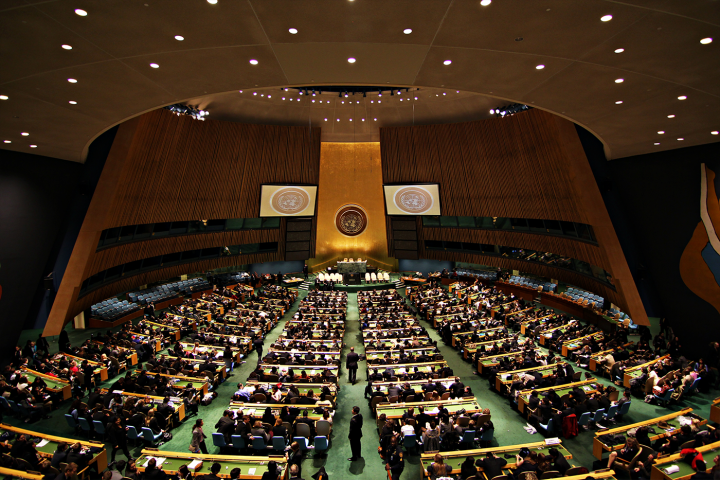Preparing the Chair, by Michael Voris
December 10, 2019Brazil’s Prince: Amazon Synod Final Doc a ‘Pantheist’ Conspiracy, by Jules Gomes
December 10, 2019
By Andrew R. DeLoach, Public Discourse, December 9, 2019
Only two years after the adoption of the Universal Declaration of Human Rights on December 10th, 1948, the United Nations established December 10th as International Human Rights Day. It would be another eighteen years before the first binding human rights treaties were adopted and another ten years before they came into force.
Since then, human rights have become a significant aspect of moral and political discourse internationally and domestically. The UN—and regional organizations like it—have promulgated a multitude of human rights treaties and policies, and an array of councils, committees, and courts to monitor, debate, and adjudicate all manner of human rights issues. Individual nations have incorporated human rights into their domestic legislation. Nongovernmental organizations and activists regularly advocate on behalf of human rights issues.
But now human rights are in trouble.
Yale historian Samuel Moyn says this crisis is the result of “swelling inequality.” Harvard law professor (and author of a history of the drafting of the Universal Declaration) Mary Ann Glendon has pointed to a “growing skepticism” about the idea of human rights and to the bias and politicization of the institutions that were created to protect these rights. Some even have criticized the Declaration itself for mixing civil and political rights with economic and social rights. And countless observers have blamed activists and various organs of the UN (and other international bodies), which have proliferated new, spurious human rights (from abortion and assisted suicide to smoking cannabis, access to the internet, and noise abatement) to such an extent that they water down all rights. Human rights have become self-negating (how does the right to life protect the right to abort an unborn human?), less important, and harder to protect. ….




